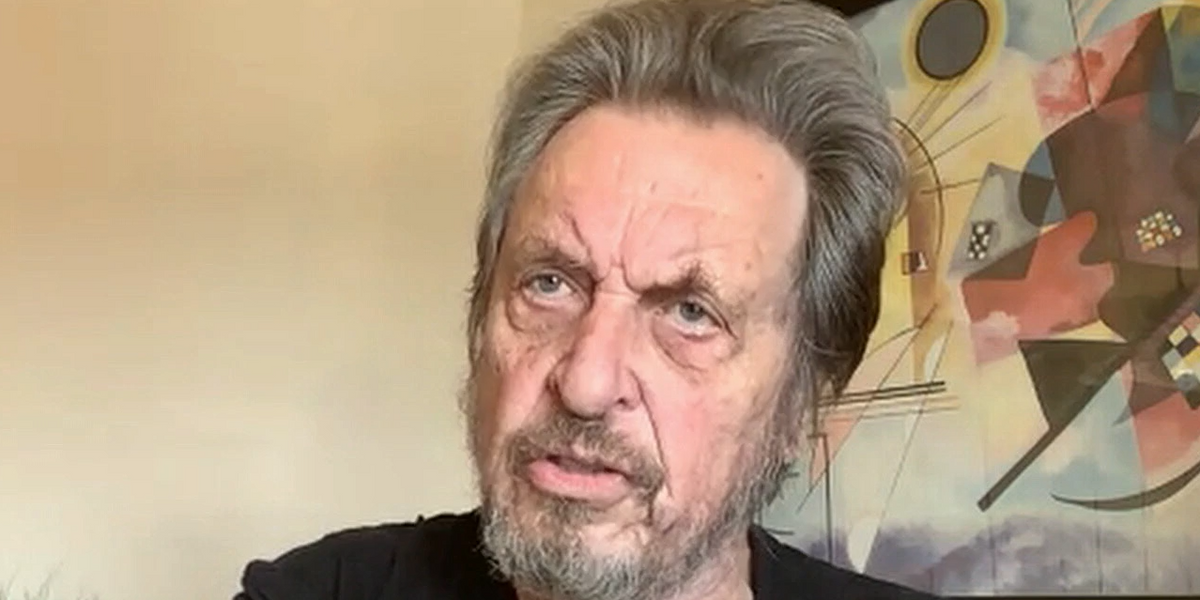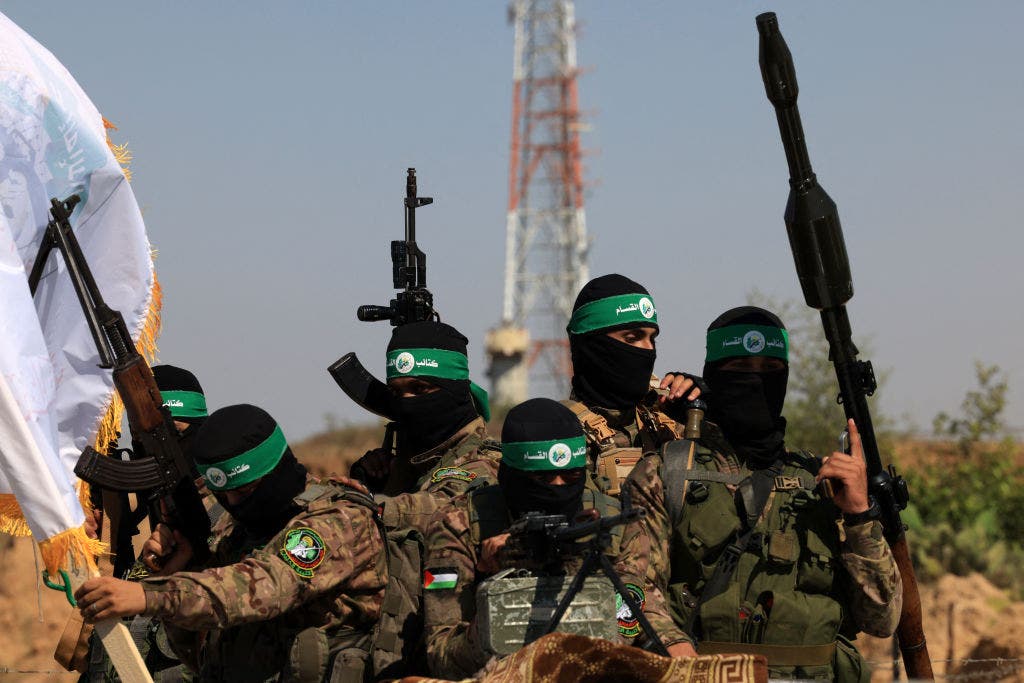 Chad, Libya, Sudan, the Central African Republic, Cameroon, Nigeria and Niger all struggle with jihadist insurgencies. The civil war in Sudan has driven around 700,000 refugees into Chad, creating a humanitarian crisis and impeding trade between the two countries. Pictured: The Ourang refugee camp in Adre, Chad, inhabited by refugees who fled the civil war in Sudan, photographed on December 7, 2023. (Photo by Denis Sassou Gueipeur/AFP via Getty Images)
Chad, Libya, Sudan, the Central African Republic, Cameroon, Nigeria and Niger all struggle with jihadist insurgencies. The civil war in Sudan has driven around 700,000 refugees into Chad, creating a humanitarian crisis and impeding trade between the two countries. Pictured: The Ourang refugee camp in Adre, Chad, inhabited by refugees who fled the civil war in Sudan, photographed on December 7, 2023. (Photo by Denis Sassou Gueipeur/AFP via Getty Images)
While much of the world media and human rights groups are fixated on the war being waged on Israel by Iran and its Hamas/Hezbollah/Houthi proxies, Islamic jihadist terrorists continue to ravage Africa.
At least 40 Chadian soldiers were killed in a terrorist attack on October 26-27 on a military base in Chad's Lake Region, according to a government statement that blamed the attack on the jihadist Boko Haram group. Reuters added:
"Chad is an important ally for French and U.S. forces aiming to fight jihadists in the Sahel, which has become the epicentre of global terrorism under attack by factions loyal to al Qaeda and Islamic State."
The area around Lake Chad, which lies along the borders of Chad, Nigeria, Cameroon and Niger, is targeted by Islamist insurgencies -- by the Islamic State West Africa Province (ISWAP) and Boko Haram -- which began a terror campaign in northeast Nigeria in 2009 and spread to Chad.
Boko Haram and ISWAP have since 2009 created severe security problems in the region. They have sent suicide bombers across Nigeria's border with Chad, and murdered many civilians and Chadian soldiers. On May 22, 2022, for instance, ISWAP terrorists abducted and murdered three Christians in Chad's Litri region, near the border with Nigeria.
In 2020, the security situation in Chad took a drastic turn for the worse, according to the Africa Centre of Strategic Studies, with Boko Haram killing 98 Chadian soldiers and wounding dozens more in Bohoma, on March 23, 202o.
Following this attack, the Chadian armed forces launched an offensive aimed at eliminating the jihadist insurgents from Chad. However, continuing terrorist attacks since then suggest that Boko Haram and ISWAP are gaining force, posing increasing risks to regional stability.
Boko Haram, founded in northeastern Nigeria, has, since 2009, carried out countless assassinations and massacres there. The group seeks the universal implementation of Islamic sharia law. According to reports, since 2009, Muslims, inspired by Boko Haram, have murdered more than 150,000 Christians in Nigeria.
According to the US government's National Counterterrorism Center,
"Boko Haram, which refers to itself as 'Jama'atu Ahl as-Sunnah li-Da'awati wal-Jihad' (JASDJ; Group of the Sunni People for the Calling and Jihad) and 'Nigerian Taliban'—other translations and variants are used—is a Nigeria-based group that seeks to overthrow the current Nigerian Government and replace it with a regime based on Islamic law. It is popularly known in Nigerian and Western media as 'Boko Haram,' which means 'Western education is forbidden' (the word boko is a holdover from the colonial English word for book). The group, which has existed in various forms since the late 1990s, suffered setbacks in July 2009 when clashes with Nigerian Government forces led to the deaths of hundreds of its members, including former leader Muhammad Yusuf...
"Boko Haram's capability increased in 2014, with the group conducting near-daily attacks against Christians, security and police forces, the media, schools, politicians, and Muslims perceived as collaborators. Boko Haram continued to raise its international profile in 2015, pledging allegiance to the Islamic State in Iraq and the Levant (ISIL) in March—and publicly using the name "ISIL-West Africa Province" and similar variants—and conducting simultaneous suicide bombings in N'Djamena, Chad, in June—the first such attack in that country's capital.
"Boko Haram's violence—including the kidnapping of 276 schoolgirls in Borno State, Nigeria, in April 2014—brought international condemnation and in February 2015 provoked a large regional CT [counterterrorism] offensive against the group that displaced it from the majority of its strongholds in Nigeria. Nonetheless, Boko Haram remains resilient, conducting attacks in neighboring Cameroon, Chad, Niger, as well as Nigeria, emphasizing the threat it poses to Western and regional interests."
Chad, Libya, Sudan, the Central African Republic, Cameroon, Nigeria and Niger all struggle with jihadist insurgencies.
The epicenters of the violence and humanitarian disaster in Africa are in the Liptako-Gourma and Lake Chad basin subregions, notes a report by the Council on Foreign Relations (CFR). Liptako-Gourma is in the central Sahel, in the borderlands of Burkina Faso, Mali and Niger. According to the report:
"The persistent and growing strength of violent extremist organizations in the Sahel threatens to exacerbate the humanitarian crisis and spread instability across Africa, posing significant security and financial risks to the United States and Europe. The continuing collapse of international counterterrorism support, as well as weakening leadership in regional efforts, has created a vacuum in which violent extremism can expand. Organizations including Jama'at Nusrat al-Islam wal Muslimeen (JNIM), Islamic State in the Greater Sahara (ISGS), Islamic State in the West African Province (ISWAP), and others have already taken advantage of that vacuum, using countries in the region as platforms to launch indiscriminate attacks on government forces and civilians alike...
"Notable attacks targeting the Radisson Blu Hotel in Mali, the Splendid Hotel in Burkina Faso, and L'Etoule du Sud Hotel in Ivory Coast in 2015 and 2016 demonstrated the extent of the Islamist threat to the Sahel and West Africa. In September 2016, the Islamic State in the Greater Sahara (ISGS) surfaced in Burkina Faso, launching its first major attack on a border post near the Burkinabe city of Markoye.
"In 2017, several al-Qaeda affiliates merged to form Jama'at Nusrat al-Islam wal Muslimeen (JNIM). The emergence of ISGS and JNIM have intensified violence in the Sahel. Both JNIM and ISGS have pushed farther south in Liptako-Gourma, threatening the security of West Africa's relatively stable coastal states. JNIM has more recently gained control over territory in northern and central Mali, while ISGS has been confined to northern Burkina Faso and western Niger due to clashes with JNIM that began in 2020.
"Violent extremism in the Lake Chad Basin at the intersection of Cameroon, Chad, Niger, and Nigeria prevailed in the same period with the reemergence of Boko Haram in northern Nigeria."
Chad's stability is intrinsically linked to the stability of neighboring nations. The ongoing civil war in Sudan between the Sudanese Armed Forces and the Rapid Support Forces, for example, poses a serious threat to Chad's stability. As Sudan's civil war escalates, it fuels further turmoil in the region.
"The conflict, which has spread to 14 of the 18 states in Sudan, has killed and wounded tens of thousands of civilians, displaced nearly 8 million people and forced two million more to flee to neighboring countries," according to the UN's Office of the High Commissioner for Human Rights.
The civil war in Sudan has driven around 700,000 refugees into Chad, creating a humanitarian crisis and impeding trade between the two countries.
In the context of the escalating Boko Haram and ISWAP jihad in Chad, the security of Christians in the country is increasingly threatened, reports Open Doors, an international human rights organization:
"These jihadist groups are known for targeting religious minorities, including Christians, in their quest to establish an Islamic State.
"Christian women are subject to sexual violence by Islamic militants. A country expert explained: 'There have been reports of Christian women being kidnapped and forced into marriage across parts of the nation where Boko haram militia have wreaked havoc. ... particularly in rural areas and in internally displaced people's camps.'
"Christian men and boys in Chad are most vulnerable to persecution from Islamic militant groups. Some have reportedly been abducted, forced to convert to Islam and be recruited to join the ranks of jihadist groups to serve as fighters.
"According to a source, men and boys, particularly in Eastern Chad are 'forced to organise self-defence groups, arming themselves primarily with spears, knives, poison-tipped arrows, etc. in order to discourage and defend against militia attacks in the absence of any substantial military or police presence provided by the Chadian government. Boys are also compelled to sleep in the open fields and watch over animals to try to prevent them from being stolen by armed militias.'"
In addition to the jihadist insurgency, Christians in Chad also suffer from persecution on a societal level, according to Open Doors.
Islam first came to Chad in the 11th century but did not become a national religion until the 16th and 17th centuries when the country had become established as a route for the Islamic slave-trade.
Although Chad is officially a secular republic, Islam is today the majority religion (56% of the population) and pervades the whole of society, causing some Chadians to show hostility and intolerance towards Christians, whom they regard as "infidels," reports Open Doors. There are over 6 million Christians in the country (35% of the population). According to Open Doors:
"The influence of Islamic extremism is quite pervasive in Chad. In collaboration with Arab nations, numerous schools, universities and mosques are being established to spread radical Islamic ideologies. This has catalyzed the radicalisation of specific segments of the population, creating an increasingly hostile environment for Christians...
"The rise of Islamic militancy in the Sahel region has profound implications for Chad, particularly for its Christian population and other minority religious communities. This surge in extremism not only empowers militant groups but also influences other Islamic factions within Chad to adopt more conservative Islamic doctrine...
"Unless there is a coordinated effort to implement comprehensive political, economic, and social reforms alongside military campaigns against Boko Haram, the extremist group's ideology is likely to continue to gain ground."
As a result of jihadi violence by terror groups in sub-Saharan Africa, 16.2 million Christians have been forcibly displaced. An Open Doors report quotes Pastor Barnabas, who lives in a displaced persons camp in Nigeria:
"Millions of Christians are displaced, here in Nigeria. Millions of Christians are displaced in Africa. The news doesn't care about it, politicians don't talk about it, governments don't talk about it, global politics don't talk about it. Nobody talks about it."
As Robert Spencer, the director of Jihad Watch, said in an October 27 interview with this writer:
"Jihad groups in several countries in Africa confront and defeat government military forces on a regular basis. This raises several questions that no one seems able or willing to answer: Who is funding these groups? Who is arming and enabling them to the extent that they are more powerful than the forces of sovereign states? What powerful and monied entities are supporting the advance of jihad in Africa?"
Uzay Bulut, a Turkish journalist, is a Distinguished Senior Fellow at Gatestone Institute.

 By Gatestone Institute | Created at 2024-11-07 10:07:36 | Updated at 2024-11-07 12:47:05
2 hours ago
By Gatestone Institute | Created at 2024-11-07 10:07:36 | Updated at 2024-11-07 12:47:05
2 hours ago








